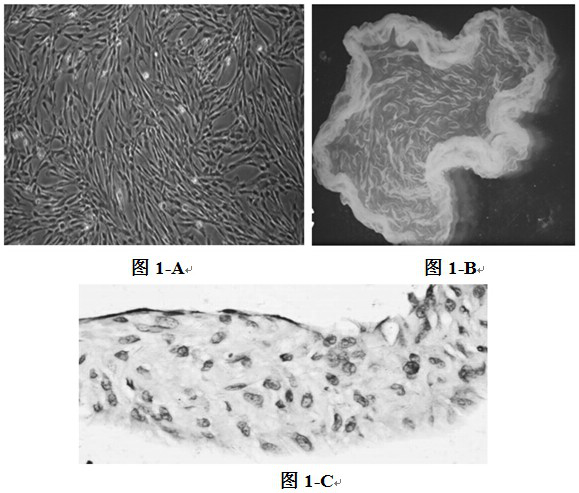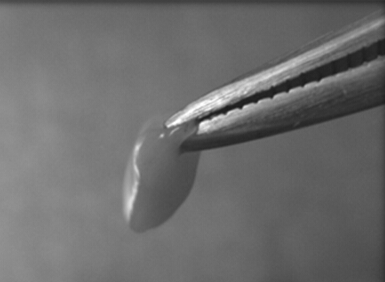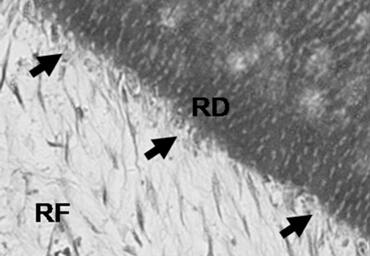A preparation method of engineered dental pulp
An engineering and endodontic technology, applied in the direction of biochemical equipment and methods, culture process, bone/connective tissue cells, etc., can solve the problem of not having natural tooth root morphology and structure
- Summary
- Abstract
- Description
- Claims
- Application Information
AI Technical Summary
Problems solved by technology
Method used
Image
Examples
Embodiment
[0033] Embodiment 1, one of the preparation methods of engineered dental pulp
[0034] Its preparation steps are as follows:
[0035] Step 1. Dental pulp cell culture: Mince the pulp tissue of deciduous teeth of miniature pigs, digest with 0.2g / L type Ⅰ collagenase and 0.1g / L Dispase enzyme for 1 hour until the tissue is loose, blow and beat the pulp with a straw The organization is fully dispersed. Sieve through a sieve to form a single cell suspension, discard the supernatant after centrifugation, then add dental pulp cell culture medium to resuspend the cells, transfer to a cell culture bottle, 37 ° C, 5% CO 2 Cultured in an incubator, the medium was changed every other day, and the cells were cultured to 90% confluence and then passaged to obtain the second generation of dental pulp cells.
[0036] The composition of the dental pulp cell culture medium A is: 10% (v / v) fetal bovine serum, 0.2 mg / mL glutamine, 75 ng / mL basic fibroblast growth factor in commercial α-MEM cul...
PUM
 Login to View More
Login to View More Abstract
Description
Claims
Application Information
 Login to View More
Login to View More - R&D
- Intellectual Property
- Life Sciences
- Materials
- Tech Scout
- Unparalleled Data Quality
- Higher Quality Content
- 60% Fewer Hallucinations
Browse by: Latest US Patents, China's latest patents, Technical Efficacy Thesaurus, Application Domain, Technology Topic, Popular Technical Reports.
© 2025 PatSnap. All rights reserved.Legal|Privacy policy|Modern Slavery Act Transparency Statement|Sitemap|About US| Contact US: help@patsnap.com



